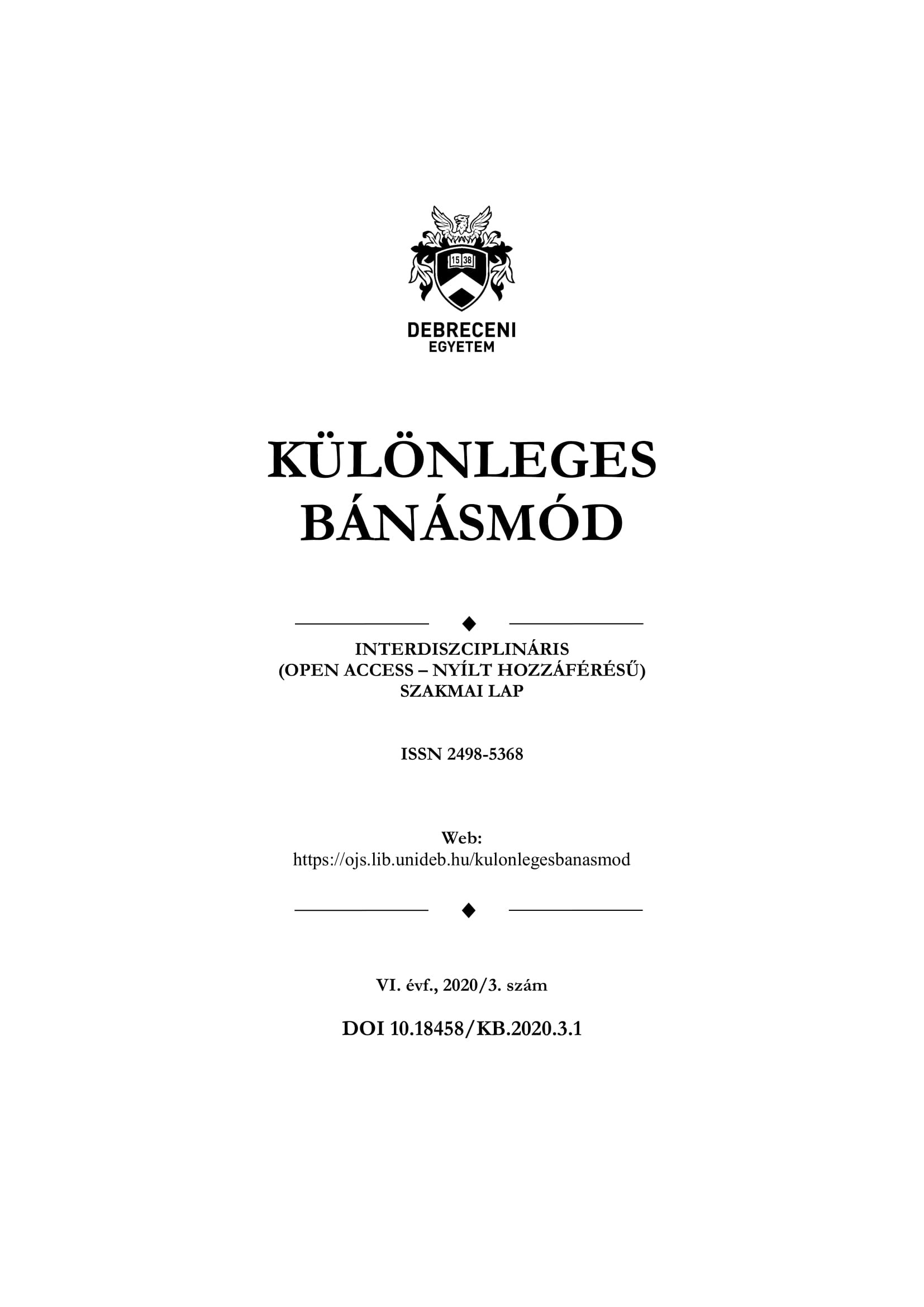SZUBJEKTÍV EGÉSZSÉGÉRZET ÉS A FIZIKAI AKTIVITÁS KAPCSOLATÁNAK VIZSGÁLATA KÖZÉPISKOLÁSOK KÖRÉBEN
Szerző
Megtekintés
Kulcsszavak
Licenc
Copyright (c) 2020 Szerdahelyi Zoltán

This work is licensed under a Creative Commons Attribution-NonCommercial-NoDerivatives 4.0 International License.
Hogyan hivatkozzuk
Absztrakt
Egészségi állapotunk megítélésének számos módszere alakult ki a tudományos ismeretek bővülésével párhuzamosan. Az orvostudomány objektív módszerekkel, mérhető változókkal írja le egészségi állapotunkat. Természetesen nekünk is van képünk a saját egészségi állapotunkról, mely minden szubjektivitása ellenére jó indikátora a testi-lelki folyamatainknak. Az egészségérzetünk hiteles tükre lehet az egészségi állapotunknak, mely közvetlenül és közvetetten is kihat a munkahelyi/iskolai teljesítményünkre. A fizikai aktivitás növekedésének az egészségre gyakorolt jótékony hatásairól folyamatosan bővülő ismeretekkel rendelkezünk, hatásmechanizmusát számtalan aspektusból értelmezhetjük. A középiskolás korosztály egészségi állapotának és fizikai aktivitásának vizsgálata hasznos információkat hordoz az egyén, a szülők és az oktatás területén (oktatáspolitikusok és pedagógusok) dolgozók számára. Jelen kutatás során a fizikai aktivitás (WHO ajánláshoz viszonyított) szintje és a középiskolások egészségérzete, iskolai teljesítménye, valamint a különböző emocionális tényezők megjelenése közti kapcsolatot vizsgálatára került sor, kiegészítve a 14-18 éves korosztály mozgással kapcsolatos motivációs hátterének tanulmányozásával. Az elemzés során szignifikáns kapcsolat jelent meg a fizikai aktivitás magas szintje és az egészségérzethez tartozó számszerűsített érték magas értéke között. Az iskolai teljesítmény és a fizikai aktivitás szintje között nem találtunk szignifikáns összefüggést. Az emocionális tényezők között szignifikáns kapcsolatot tapasztaltunk a boldogság, életkedv, energikusság, valamint a szomorúság és a fáradtság kategóriák fizikai aktivitással történő összehasonlítása során. A mozgásos motívumok között kiemelkedő helyet foglal el a fizikai állapot javítása, és egyértelműen elutasító ez a korosztály a másoknak való megfeleléssel szemben. Szintén tanulságos a testi nevelés területén dolgozók számára, hogy a mozgás élményszerűsége meg-határozó a korosztály tagjai számára.


 https://doi.org/10.18458/KB.2020.3.51
https://doi.org/10.18458/KB.2020.3.51